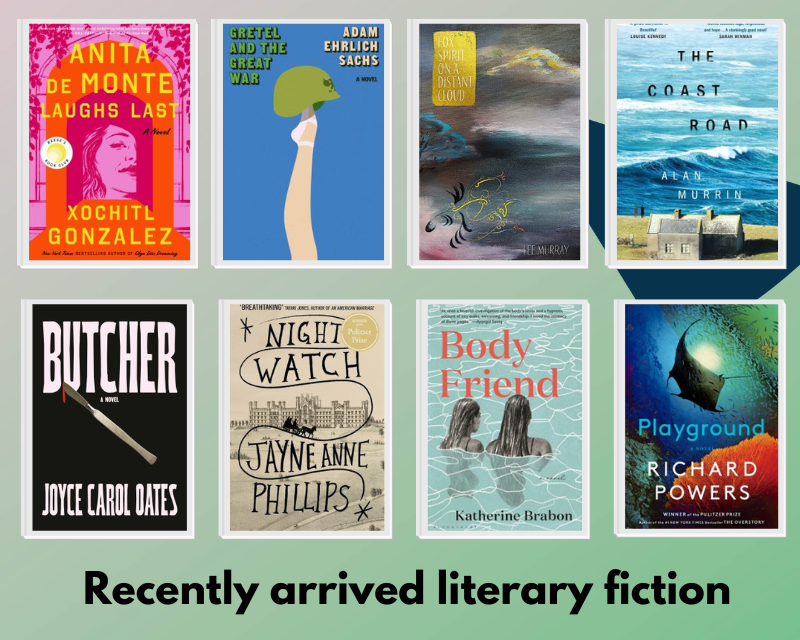November literary fiction roundup

Anita de Monte Laughs Last by Xochitl Gonzalez
When Anita de Monte dies suddenly and tragically, in 1985, she is a rising star in the New York art world, but a decade later she is largely forgotten. That is until Raquel, herself rising in the art world - although in a different manner, stumbles upon Anita's story. A powerful and propulsive story of racism, classicism, misogyny, and two young Latina woman trying to find their places in the world.
Gretel and the Great War by Adam Ehrlich Sachs
26 short stories, one for each letter of the alphabet, capturing the spirit of post World War 1 Vienna. From Architect to Zionist, these stories interweave to show the tapestry of a fallen empire, peopled with scientists and thinkers, actresses and doctors, revolutionaries and lovers. A unique work.
Fox Spirit on a Distant Cloud by Lee Murray
The nine-tailed fox spirit, the húli jīng of Chinese mythology must live nine lives before she can ascend to the gods. As the inhabiter and narrator, she lives the lives of nine Chinese migrant women to Aotearoa New Zealand, women who have been sidelined, murdered, forgotten or driven to suicide over our history. Murray remembers these women, often barely footnotes in history, in poignant and haunting ways.
Irish writing is having a moment, and Murrin's debut novel if two women; a housewife and a poet has won international accolades. Izzy and Colette are both caught in troubled marriages, constrained by children, and by the limitations placed on women by 1990s Irish society. Exploring themes of loss, love and independence, The Coast Road will be a must read for those on the Irish fiction band wagon, and for readers of John Boyne, Colm Tóibín and Clare Keegan.
A masterful storyteller whose sprawling collection of over 60 works cover genres as diverse as poetry and essay, memoir (both real and fictionalised), diaries, psychological fiction, social commentary and the darker side of human nature. In Butcher she explores a imagined history of Doctor Silas Weir, a compilation of three real historical figures. Weir, shunned from traditional medical practice after an experimental procedure goes wrong, moves to an asylum to work with pregnant women. This is Oates at her most gothic.
Night Watch by Jayne Ann Phillips
In post-Civil War West Virginia, a young girl and her traumatised mother seek refuge in the Trans-Allegheny Lunatic Asylum where ConaLee, forced to mature beyond her years, becomes a caretaker for her mother while navigating the strange and often dangerous world of the asylum. Phillips's evocative prose and intricate character studies create a haunting portrait of a time and place marked by both hope and despair and won her a Pulitzer Prize for Ficton earlier this year.
Body Friend by Katherine Brabon
Our unnamed narrator, faced with a long post-surgical recovery time, spends time in a hydrotherapy pool where she meets Frida and Sylvia, two young women also convalescing, although in very different ways. Brabon insightfully explores the ideas of chronic illness and recovery, suffering, our bodies and the spaces we inhabit in this cyclical and emotional story.
Spanning the globe from north America to the Pacific and different decades, four charactrs are drawn together in this profound exploration human connection, technological advancement, and the delicate balance between nature and culture. Powers once again shows the storytelling prowess that won him a Pulitzer Prize and landed him on the Booker Prize longlist.

